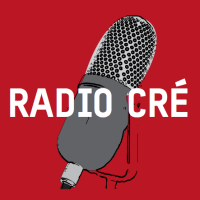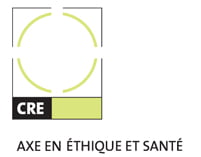
Normative and Epistemic Challenges of Collective Patient Representation
Cet événement organisé par l’axe éthique et santé du Centre de recherche en éthique (CRÉ) a été enregistré le 15 octobre 2018, à l’École de santé publique de l’Université de Montréal (ESPUM).
Silke Schicktanz, « Normative and Epistemic Challenges of Collective Patient Representation »
Caméra (à l’épaule): Jean-Philippe Royer [désolé pour la nausée!]
Montage: Marc-Antoine Plouffe
ABSTRACT: The WHO Declaration on the Promotion of Patients’ Rights in Europe (1994) has pointed to the collective right of patients being presented on all level of health care decision makings. A general argument for more explicit presentation can be found in procedural considerations of justice in health care and political decision-making. Therefore, the representation and influence of patients on a collective level of health care policy and biopolitical deliberation is an important issue for bioethics and public health ethics.
The important practical moral question is therefore, why and if, how patient organisations should be considered and take part in public/political health decisions. This is also important for political bodies of bioethics, such as IRBs, ethics committees of health care institutions, or national ethics councils. The emergence of POs as relatively new social agents in this public sphere raises questions about the nature of their moral authority and also, their collective responsibility. Does the claim of POs that they « speak for » patients endow them with moral authority/agency?
This presentation analyses aims, modes of representation, and examples of collective interest formation of patient organizations (abbr. PO) which refer to patients who are commonly seen as unable to speak on behalf of themselves. This theoretical analysis is informed by an empirical interview study we conducted in 2016-17 with members, service recipients and representatives of dementia and autism POs in Germany and Israel.
The analysis highlights how new developments and splits into new POs are embedded in the discursive context of the stigmatisation of dementia and revised disease conception. I will also discuss how this might be relevant for patient respresentation in other areas of diseases.
BIO:
Since April 2010, Silke Schicktanz is full-professor at the Department of Medical Ethics and History of Medicine at the University Medical Center Goettingen. She has studied biology and philosophy at the University of Tübingen from 1991-1997. After finalising her PhD thesis on the ethics of xenotransplantation (2002) she held various research positions at the Deutsches Hygiene-Museum in Dresden (2001-2002), at the Max-Delbrück-Center for Molecular Medicine/Forschungszentrum Jülich (2002-2003) and at the Department for Ethics, History and Theory of Medicine at the University of Muenster (2004-2005). In 2011 she hold an Adjunct professorship for Philosophy at the San Francisco State University and was visiting research scholar at the University of California, Berkeley by a grant of the Alexander-von-Humboldt-Foundation (2011-12). Furthermore, she was visiting scholar at the University of Delhi, Tel Aviv University, and at CESAGEN, Lancaster. Currently, she is visiting research scholar at the University of Montreal, collaborating with Prof. Annette Leibing. She was reviewer for the ERC Advanced Review Panel SH4 (2009-2013; 2015-2017). Her current research combines the following interests in:
- cultural differences in bioethics (esp. organ donation, genetic testing, ageing and dying, personalized medicine)
- Lay people and patients’ involvement in bioethics and health politics
- Normative conceptions of responsibility, autonomy, and collectivity
Vous pouvez suivre le Centre de recherche en éthique (CRÉ), la revue Les ateliers de l’éthique/The Ethics Forum et Radio Cré sur les médias sociaux:
Page Facebook CRÉ
Compte Twitter CRÉ: @centre_ethique
Compte Twitter AEEF: @ateliers_ethic
Vous pouvez également vous abonnez aux podcast de Radio CRÉ sur SoundCloud.
![]()
Les produits sont protégés par une licence Attribution 4.0 International (CC BY 4.0).
Pour plus de détails sur cette licence, veuillez vous référer à l’adresse suivante.
Products are protected by a Attribution 4.0 International licence (CC BY 4.0).
For more details on this licence, please refer to the following address.



